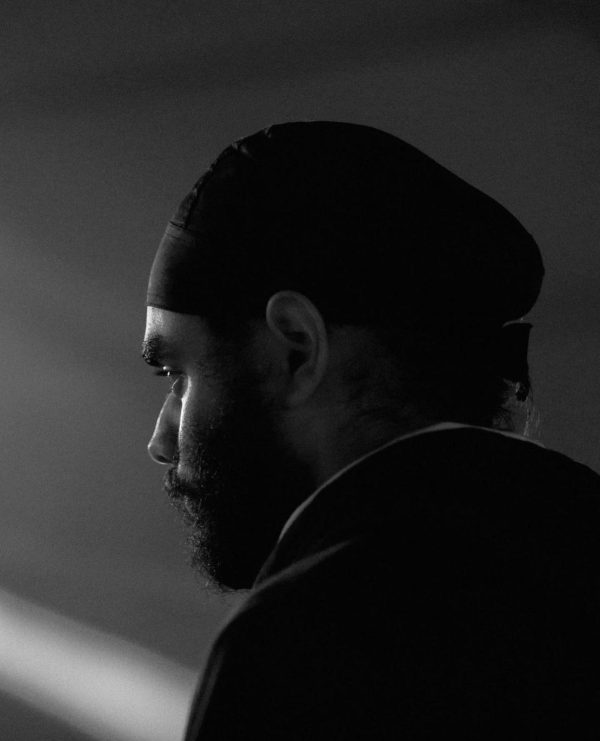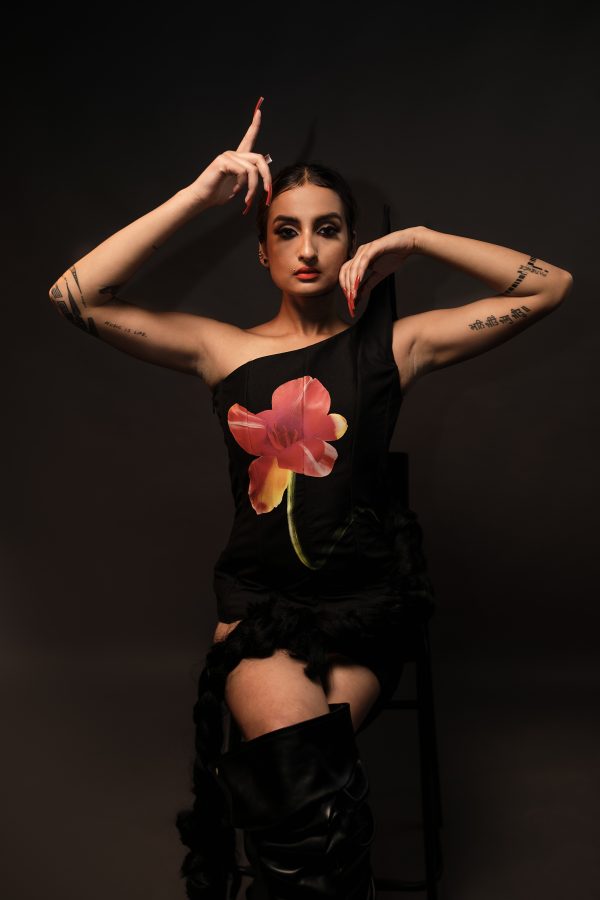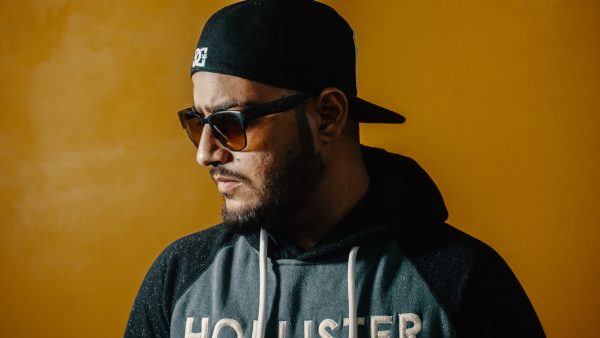We spoke to Hisab about his journey as a producer, his inspiration, ongoing projects, and his future plans. Here is the full interview with Hisab.
Your Name is an interesting name for a producer. What prompted you to come up with the name? Please share the story behind it!
In my teenage years, I endured severe bullying, coincidentally sharing the same initial “R” with the bully. Surprisingly, rearranging the letters in “Hisab” reveals his name. This twist of fate turned my destruction into salvation.
What pushed you to have a career in Hip-Hop music while growing up? While rapping is still easier to explain, how did you explain to your family about your passion and career choice?
Music has always been my rock, providing solace and understanding in my life. I’ll never forget the moment when Akon’s “Smack That” hit me like a ton of bricks in 6th grade, sparking my curiosity and setting me on a path to explore music further. While I wouldn’t label myself as a Hip Hop producer, I’m more of a die-hard metalhead. My veins pump with more breakdowns than drops if you catch my drift!
Initially, convincing my parents about my dedication to pursuing music was an uphill battle. However, as they witnessed the extent of my unwavering commitment and saw the lengths I was willing to go to express my creativity, their understanding gradually grew. Now, they eagerly inquire about the release dates of my upcoming musical projects.
Can you tell us about your background and how you got started in the music industry?
Man, it all started in 6th grade when my dad got me a Casio CTK 496 and I began tinkering with the keys. YouTube became my teacher, and I started jamming out to Green Day’s “21 Guns,” Linkin Park’s “Numb,” and even ventured into playing Lamb of God’s “Laid to Rest” on those keys. But you know what was really cool? Rocking out on the keys to Metallica’s “Nothing Else Matters.” Good times, I tell ya!
Music has been my constant companion throughout my life, and now it’s my time to give back.
I’ve been on a journey of exploring different music genres, and it all started back in 2013 when my bruv Akash introduced me to trap music. He played this sick track called “Dope” by Apex Rise, and as soon as that bass hit my ears, I knew I had to get involved somehow. So, from 2013 to 2016, I was just immersing myself in music, listening non-stop to everything I could get my hands on. It was like building up my musical vocabulary, you know?
So, after ditching engineering college (yeah, that happened), things took a crazy turn. My dad got posted in Ahmedabad (I’m a defense kid, by the way), and that’s where I crossed paths with this awesome dude named Dev. He hooked me up with Ableton, and that’s when I started diving into the behind-the-scenes magic of making beats and songs. It was a whole new world opened up to me!
What inspired you to become a rap music producer?
Gotta say, I feel incredibly lucky and stoked to have this gift of expressing myself through music. And let me tell you, Mr. Carmack was a game-changer!
That guy blew my mind with his mind-boggling sound wizardry. It was like, “What the actual f*** is he doing?!” That moment fueled my fire to explore the realm of sound design, and boom! I transformed into a music producer.
How do you stay current and adapt to changing trends in the rap music industry?
The sheer complexity and wonder of sounds never fail to mesmerize me. It’s an endless source of fascination that perpetually drives my desire to learn and grow within this extraordinary musical journey. I approach this path with utmost humility, recognizing that I am forever a student, eagerly absorbing knowledge and experiences along the way.
Who has influenced or inspired you in your work as a rap music producer?
First off, shoutout to my mom and dad, man. I am what I am because of them and how they raised me and introduced me to legends like Elvis Presley, Bob Dylan, The Beatles, Def Leppard, Michael Jackson, Eric Clapton, and a whole bunch of those epic road songs.
When it comes to metal and prog, these bands have been my absolute heroes: Porcupine Tree, Trivium, Children of Bordem, Lamb of God, Linkin Park, Opeth, August Burns Red, The Browning, and of course, the almighty Metallica.
Producers that blew me away :
Mr Carmack, Mr bill, Stooki Sound, Apex Rise, ARYAY, Noisia, Rufus du sol, lane 8, Stephan Bodzin, ArtBAT
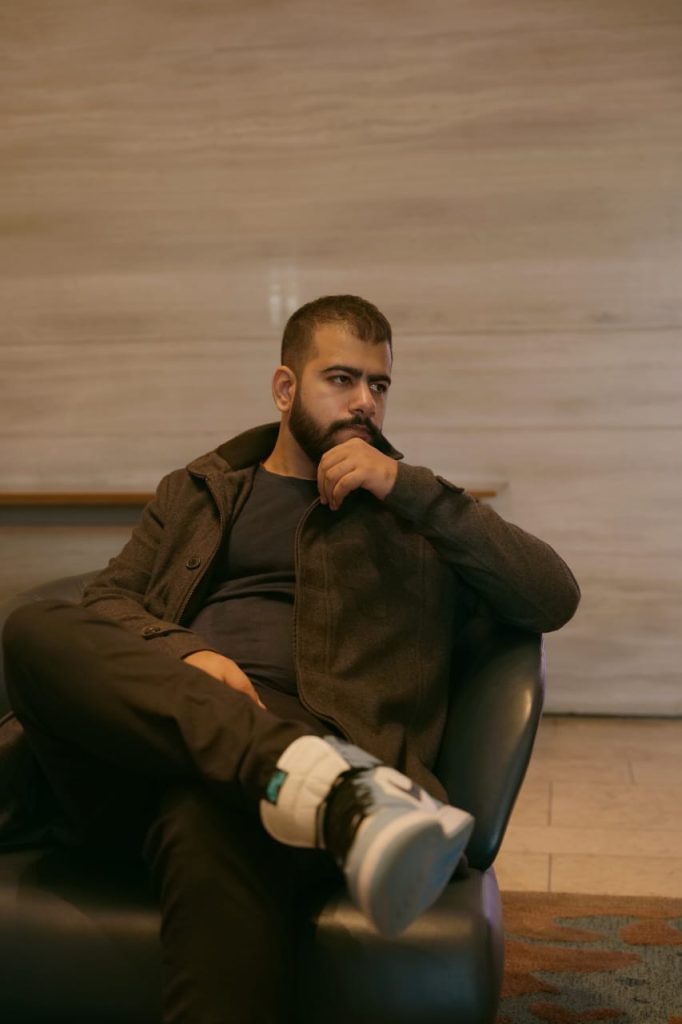
Can you tell us about the role that social media has played in your work as a producer?
Social media has this insane ability to make you go viral in no time with just one reel or remix. It’s like instant stardom, you know what I’m saying? But as an artist, you gotta dig deep and ask yourself: what’s your true purpose?
For me, it’s all about experimenting with sounds that really hit me in the feels. I’m doing this for myself, man. And it’s a beautiful thing when you create something that touches people’s hearts. It’s like, sometimes my songs have saved someone or brought healing to someone’s soul. Man, that kind of impact, brings tears to my eyes, for real. Music is a powerful force.
Can you discuss the role that technology and software play in your production process?
Now you can sample your own voice and create a full-on banger out of it. I mean, it’s insane how things have evolved! With all these tech updates, all you need is your trusty laptop and headphones, and you can make magic happen. It’s like everything is right at your fingertips.
How do you keep up with emerging artists and trends in the rap music industry?
In all honesty, I don’t rely solely on the professional scene to discover talented rappers or artists. For me, it’s all about the power of word of mouth. When someone truly stands out and has genuine talent, you’re bound to hear about them from others in the know.
Let me break it down for you. When a rapper or artist is truly exceptional, their reputation starts spreading like wildfire through the grapevine. People can’t help but talk about them. It could be your friends, fellow musicians, or even passionate fans who can’t resist sharing the greatness they’ve stumbled upon. That’s how you know someone is the real deal.
There’s something special about this organic process of discovery. It cuts through all the noise and hype, getting straight to the heart of what matters: the genuine talent and artistry that resonates with people on a deep level. So, while the professional scene certainly plays a role, the power of word of mouth remains an invaluable tool for uncovering the best of the best.
How do you decide which artists to work with and what criteria do you look for in potential collaborators?
Undoubtedly, it’s a universal dream for artists to collaborate with the crème de la crème of the music scene. Who wouldn’t want to team up with the best of the best, right? However, when it comes to choosing a collaborator, I prioritize their skillset and mastery of their craft above all else.
How do you balance creative control with the artist’s vision for a song or project?
When an artist confides in you, entrusting you with their creative vision or providing a rough idea of what they seek, there are occasions where the direction may resonate well, while at other times it may not align with your own artistic sensibilities.
In such instances, it becomes essential to communicate respectfully, expressing that your creative vision differs and proposing an alternative approach. It is often surprising how open-minded and receptive artists can be when presented with a different perspective.
What they initially perceived as a “6” may transform into a “9” when seen from a fresh angle. This dynamic interplay of ideas and the willingness to explore different paths is what makes the creative process so intriguing and fruitful.
How do you incorporate feedback from artists, labels, and fans into your production process?
Collaborations thrive on a foundation of mutual respect and appreciation, where the exchange of ideas is fluid and dynamic. Each participant brings their unique perspective to the table, contributing to the creative process. What sets collaborations apart is the freedom given to each individual to explore their artistic vision.
However, the dynamics shift when it comes to ghost production. In such cases, the focus shifts towards fulfilling the specific desires and preferences of the artist or client. As a ghost producer, I prioritize their vision above my own, allowing them to take the reins and maintain full control. It is their artistry that takes center stage, and my role is to support and facilitate their creative journey.
By letting them lead, I ensure that their artistic direction remains intact. This approach ensures that the final product aligns with their vision and satisfies their artistic sensibilities. While my input may still be valuable, I always defer to their creative decisions and preferences.
Can you tell us about a particularly memorable project or collaboration you’ve worked on and why it stands out to you?
Working alongside Hanumankind has been a truly remarkable experience, one that has left a lasting impression on me. Moreover, I would be remiss not to express my deep appreciation for the unwavering dedication and brotherly care extended to me by Rohan, his esteemed manager.
The beat by far is one of my favorites and the ability to experiment and have that creative freedom was a cherry on the top.
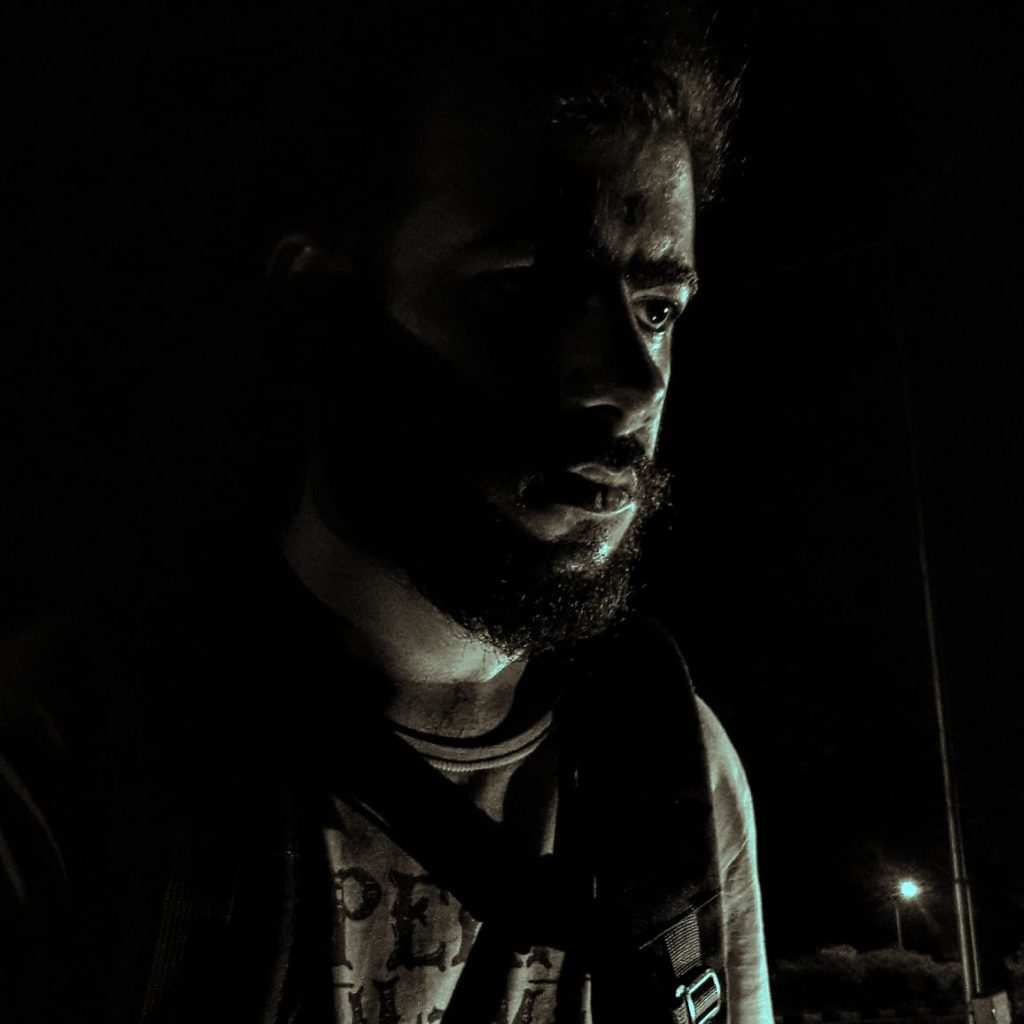
What is your creative process like when creating a beat from scratch? And how do you approach the creative process of producing a rap song?
For me, the essence lies in the power of ideas. I firmly believe in trusting my intuition and diving deep into the realm of creativity. With closed eyes and an open mind, I embrace the journey of finding that perfect flow, continuously honing my skills along the way.
Within the initial ten minutes of crafting a song, a crucial juncture emerges. It is during this pivotal timeframe that I make a critical assessment, determining whether the creative direction is on point or requires adjustment. Once I discover that captivating sound, captivating sample, or captivating idea, it serves as the foundation upon which the rest is built.
When collaborating with a rapper, a delicate balance must be struck. It is essential to ensure that the beat harmoniously complements the rapper’s flow, never overpowering their lyrical prowess. By keeping the rapper in mind throughout the beat-making process, I strategically select pockets and create a vivid musical landscape that allows their verses to shine brilliantly.
How do you manage your time and workflow when working on multiple projects at once?
When faced with the challenge of juggling multiple projects simultaneously, effective time management and a well-structured workflow are essential.
1. Prioritize and Set Goals
2. Creating a schedule
3. Break Projects into Tasks
4. Time Blocking
Can you walk us through your workflow and equipment set up in the studio?
In my creative arsenal, I am equipped with a reliable and powerful companion: the MSI Pulse GL66 laptop. To truly immerse myself in the sonic landscape, I rely on the Beyerdynamics DT 900 Prox headphones and a Fifine T669 Condenser USB Microphone which is just okay to record demo vocals.
As a legend once quoted it’s not about the gear it’s the ear.
How do you approach sampling and incorporating other artists’ work into your productions?
When it comes to sampling and incorporating other artists’ work into my productions, I often rely on my network of producer friends and platforms like Splice for interesting sample sources.
While YouTube can be a valuable resource, I try to avoid relying on it heavily due to the complexities and challenges involved in sample clearance.
Producers in my circle often share intriguing sounds and samples they come across, which adds an element of collaborative discovery to my creative process. This exchange of ideas and materials allows us to inspire and support each other in our respective projects.
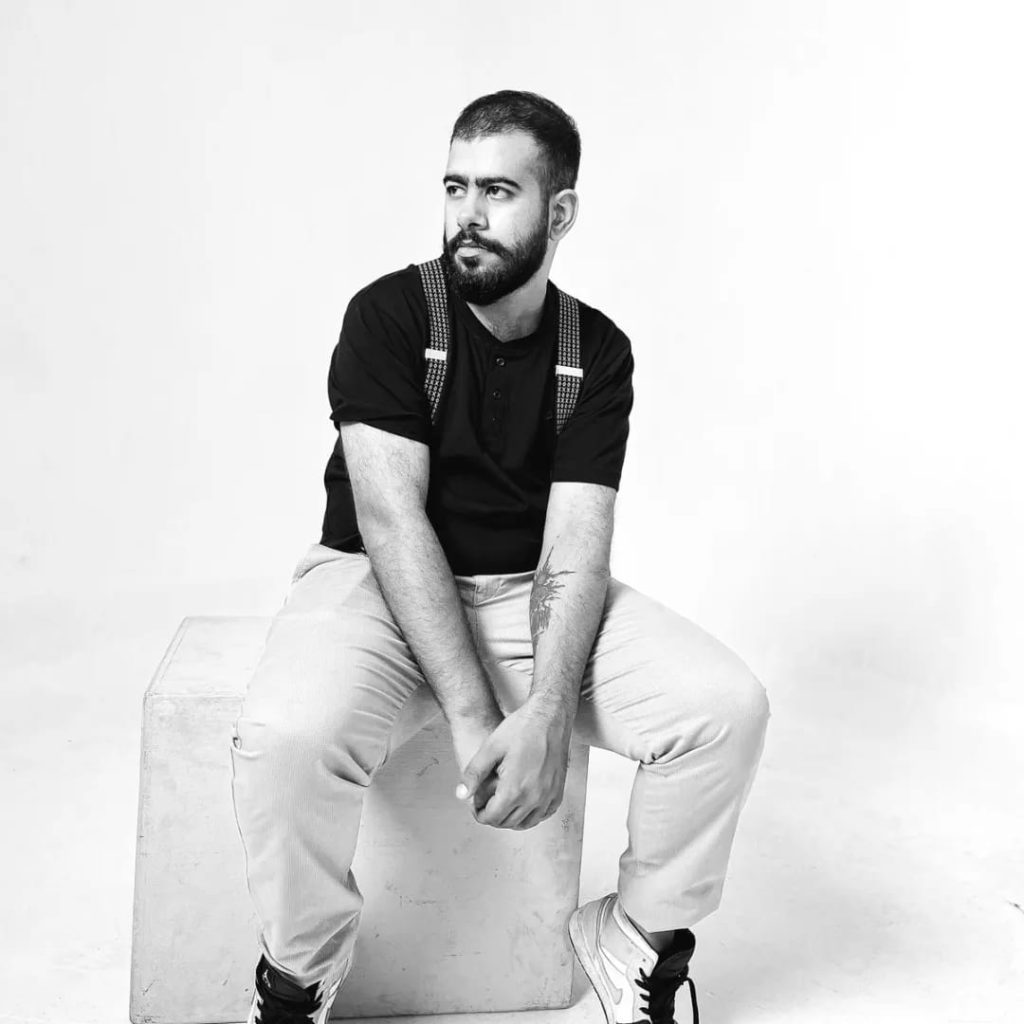
What is your favorite piece of equipment or software that you use for production?
Within my creative workflow, FL Studio serves as my digital audio workstation (DAW) of choice.
One technique I frequently employ involves utilizing the Stretch function to manipulate audio.
By stretching and warping sounds, I can create unique textures and rhythmic variations. Additionally, I enjoy experimenting with reversing audio, playing with pitch adjustments, and applying an abundance of distortions, reverbs, and other effects. This process allows me to sculpt and shape the sound in unconventional and captivating ways.
To enhance the sonic landscape, I rely on various effects such as EQ, which helps me sculpt the tonal balance and emphasize desired frequencies. I also embrace the addition of noise elements strategically placed to add depth and character to the overall mix.
One plugin that I particularly appreciate in FL Studio is the Patcher. Often overlooked, this underrated gem allows me to build complex chains of effects and signal processing.
Can you tell us about the importance of networking and building relationships in the music industry?
Your network can be a game-changer, man. It’s all about building genuine connections, not just trying to use people for your benefit. Take the time to talk to folks, get to know ’em, and understand where they’re coming from.
And here’s the key: let your work do the talking. Put in the hard work and let your talent shine.
You’ll find your tribe, the people who vibe with your style and appreciate what you bring to the table. It’s all about patience and hustling. Trust the process, and the right connections will come your way.
What are your future plans or upcoming projects that you’re excited about?
My main focus is honing my craft and continuously improving as an artist.
As for the future, my ultimate goal is to turn this artistic journey into a full-time gig. I want to dedicate my days to creating and sharing music with the world. It’s a dream I’m actively working towards.
As for upcoming projects, well, I’ll leave that as a surprise for you 😀
What advice would you give to aspiring rap music producers looking to break into the industry?
Work Hard, keep your head down, be humble, put in the work, and attend a lot of gigs.
Have an open mind, define your why and most importantly listen to a lot of music and keep experimenting.
Follow and listen to Hisab on Spotify



